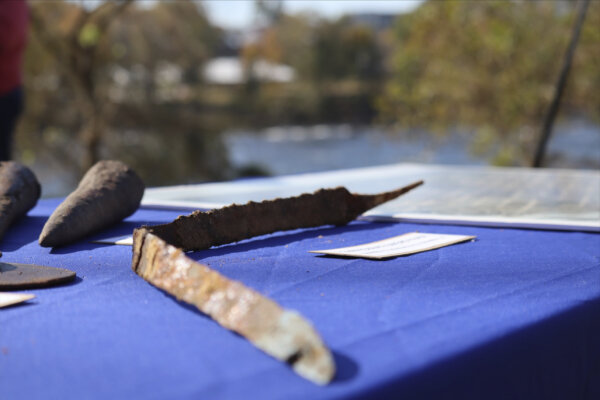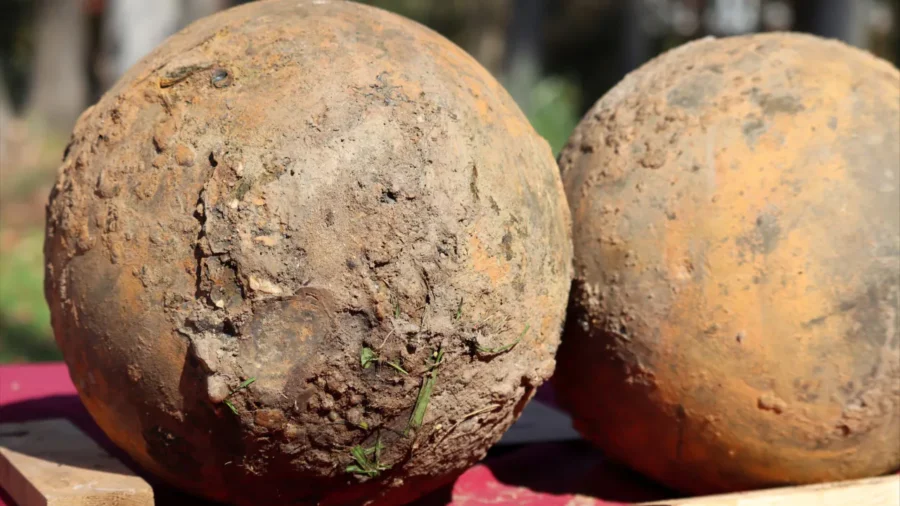COLUMBIA, S.C.—Hundreds of Civil War relics were unearthed during the cleanup of a South Carolina river where Union troops dumped Confederate military equipment to deliver a demoralizing blow for rebel forces in the birthplace of the secessionist movement.
The artifacts were discovered while crews removed tar-like material from the Congaree River, and brought new tangible evidence of Union Gen. William T. Sherman’s Southern campaign toward the end of the Civil War. The remains are expected to find a safer home at the South Carolina Confederate Relic Room and Military Museum in the state capital of Columbia.
Historical finds include cannonballs, a sword blade, and a wheel experts believe belonged to a wagon that blew up during the two days of supply dumps. The odds of finding the wagon wheel “are crazy,” according to Sean Norris.
“It’s an interesting story to tell,” said Mr. Norris, the archaeological program manager at an environmental consulting firm called TRC. “It’s a good one—that we were able to take a real piece of it rather than just the written record showing this is what happened.”

One unexploded munition got “demilitarized” at Shaw Air Force Base. Mr. Norris said the remaining artifacts won’t be displayed for a couple more years. Corroded metal relics must undergo an electrochemical process for their conservation, and they’ll also need measurement and identification.
Dominion Energy crews have been working to rid the riverbed of toxic tar first discovered in 2010, at times even operating armor-plated excavators as a safeguard against potential explosives. State and local officials gathered Monday to celebrate the early completion of the $20 million project.
South Carolina Republican Gov. Henry McMaster said this preservation is necessary for current generations to learn from history.
“All those things are lost on us today. They seem like just stories from the past,” Mr. McMaster said. “But when we read about those, and when we see artifacts, and see things that touched people’s hands, it brings us right back to how fortunate we are in this state and in this country to be where we are.”
By James Pollard

